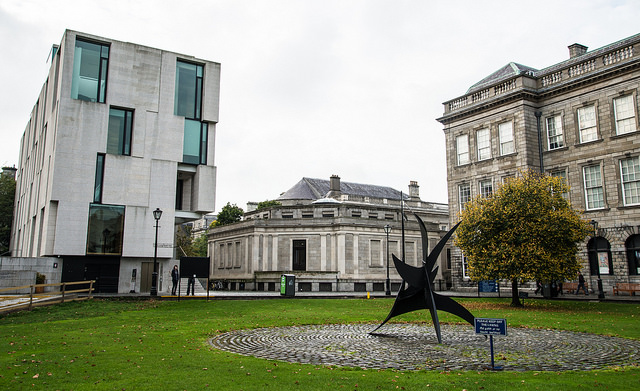Multiple major revolts during the Ptolemaic era of ancient Egypt may have been caused by volcanic eruptions resulting in less summer flooding of the Nile, according to new research by historians in Trinity and Yale.
The Ptolemaic era is famed in history for its culture and architecture. Cleopatra ruled during this time and cities like Alexandria prospered. This success, however, was linked to the river Nile and the flooding which supported the region’s agriculture. The study found that large volcanic eruptions interrupted African summer monsoons, reducing the flow of the Nile and leading to economic and political instability in Egypt.
The research into the period has provided better insight into climate change and its impact on society as a whole. The research shows how societies responded to climate shocks in the short term. The team of researchers used writings about Nile flood quality, as well as polar ice-core records and climate modelling to show the causal link between these volcanic eruptions and periods of instability in Ancient Egypt. As the Ptolemaic era is so richly documented, there was already a relatively clear record of the dates of any revolts, but this study helps to answer the question of why they happened, which was previously unknown.
Revolts occurred during this time against the ruling Ptolemaic family and the ending of several major interstate wars between the Ptolemies and their great rivals, the Seleukid Empire. The lack of Nile flooding resulted in discontent with the family’s ability to rule and reduced their ability to afford increased warfare.
In a press statement, Dr Francis Ludlow, who is a Marie Skłodowska-Curie Individual Fellow in Trinity’s School of Histories and Humanities and joint leader of the study, explained that “it is very rare in science and history to have such strong and detailed evidence documenting how past societies responded to sudden hydroclimatic shocks”.
Ludlow said that while many volcanoes erupt each year, there hasn’t been eruptions on such a scale as to have an impact on the climate. “There hasn’t been a truly large eruption affecting the global climate system since Mount Pinatubo in the Philippines in 1991”, he explained.
Despite that, this research still has significant implications on current discussions of climate change and how to approach climate change in the future. This particularly applies for nations that depend on the summer floods of the Nile. In a press statement, Prof Joseph Manning, who is a William K & Marilyn Milton Simpson Professor of History and Classics at Yale, said that advancements in palaeoclimatology is “revolutionising our view of societies and how the forces of nature influenced them in the past”.







